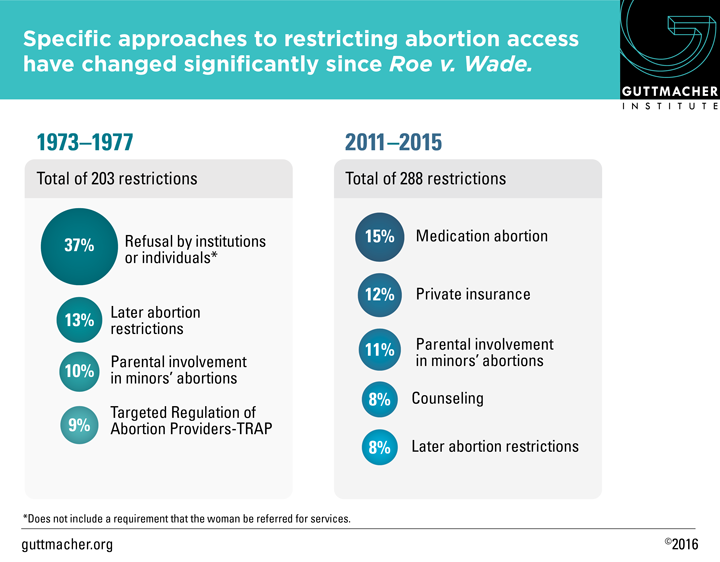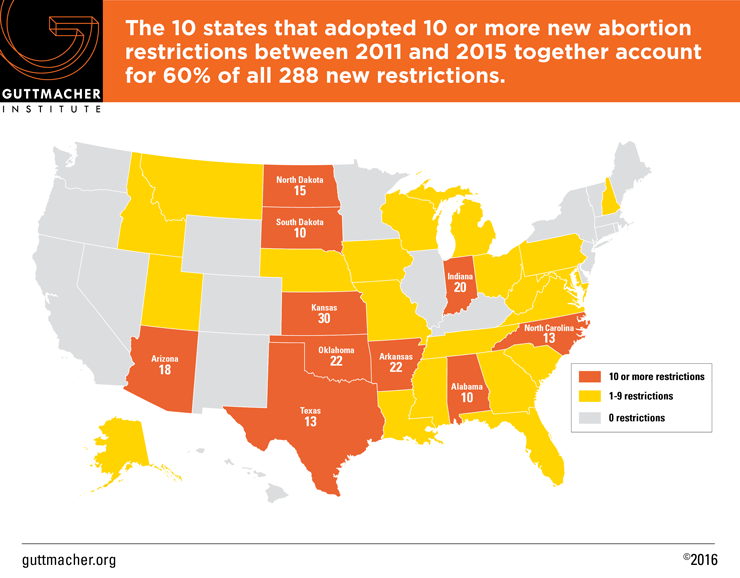This Graphic Shows How Many Abortion Restrictions Have Been Added Since Roe v. Wade

By:
Forty-three years after the U.S. Supreme Court ruled that woman had a legal right to abortion in the landmark Roe v. Wade case, states have continued to restrict access to abortion. More than 280 restrictive abortion laws have been passed in the last five years: that's 27 percent of laws passed since Roe v. Wade in 1973.
RELATED: The Real Reason Why Women Get Abortions
The year that the ruling took effect, states responded by passing 88 laws that restricted access to abortions, including 24-hour waiting periods before the procedure and requirements for consent from the woman's spouse, Vox reported. A total of 203 restrictive abortion laws were passed between 1973 and 1977.
But those measures pale in comparison to laws passed in recent years.
The largest surge in restrictive abortion laws happened in 2011, when states passed 91 measures to limit access to abortions. It was the single most passed in one year, according to the Guttmacher Institute, a nonprofit organization that tracks reproductive health policy worldwide.
The type of restrictive policies anti-abortion lawmakers have pursued have changed over time. Limitations on medication abortions (38 states require licensed physicians to administer mifepristone, a drug that can end pregnancy that is less than seven weeks along), private insurance restrictions, and requirements for parental consent for minors are recent developments, for example.
 Guttmacher Institute - guttmacher.org
Guttmacher Institute - guttmacher.org
Why are abortion restriction laws on the rise now?
The national debates over healthcare reform since President Barack Obama's Affordable Care Act passed have likely contributed to the trend. Pushback from lawmakers over the inclusion of abortion coverage in insurance plans forced the president to take executive action prohibiting tax subsidies from paying for abortions, except in cases of rape and incest.
 Guttmacher Institute - guttmacher.org
Guttmacher Institute - guttmacher.org
Because pro-life groups feel that the executive action doesn't go far enough, however, they've lobbied state lawmakers to pursue stricter laws concerning abortion restrictions.
RELATED: Thousands of Texas Women Have Tried To Perform Their Own Abortion
"In 2010, Republicans ran 14 state governments. By 2011, that increased to 26. So by the end of 2010, abortion had become a prominent political issue — and Republicans had more political clout to take action," Vox added.
h/t Vox
